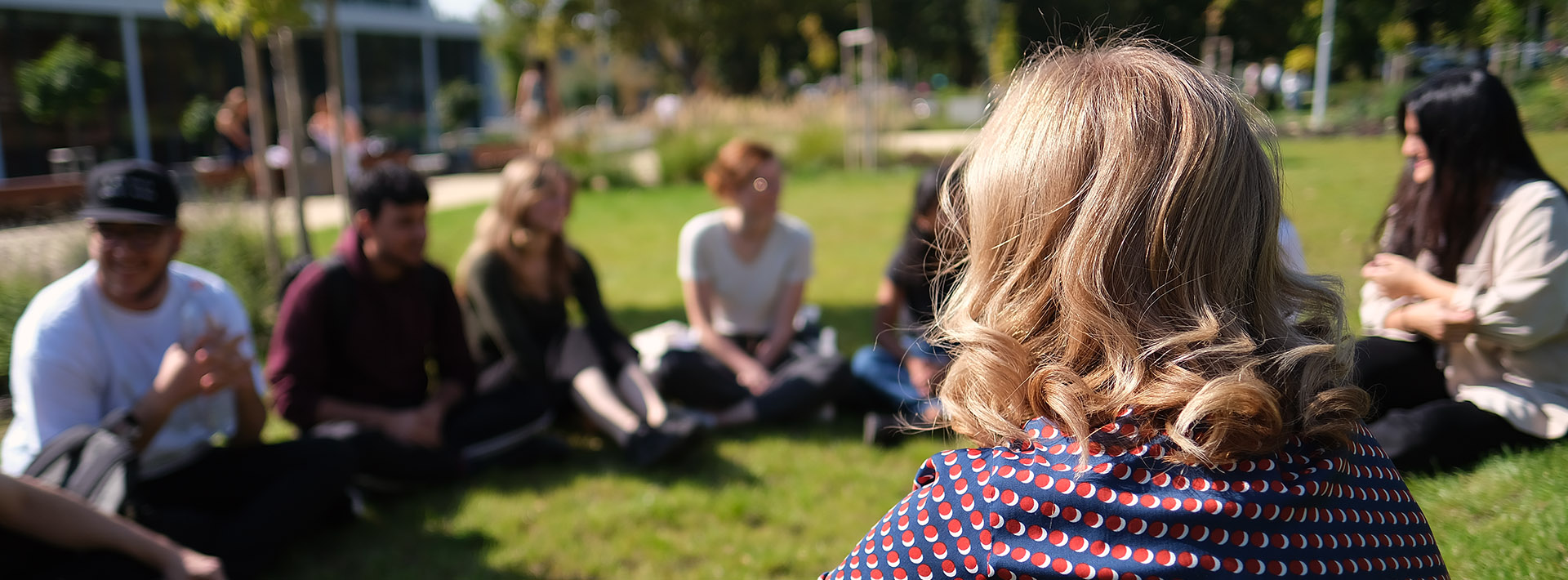Adatok
A Tantárgybejelentőben megadott hivatalos adatok az alábbi tanévre: 2024-2025
Tantárgyfelelős
-
Eklicsné Lepenye Katalin
assistant professor,
Department of Languages for Specific Purposes
Óraszámok/félév
előadás: 0 óra
gyakorlat: 0 óra
szeminárium: 24 óra
összesen: 24 óra
Tárgyadatok
- Kód: OAE-N65-T
- 2 kredit
- General Medicine
- Elective modul
- both
Nincs
Kurzus létszámkorlát
min. 5 fő – max. 15 fő
Tematika
" Taking medical history with actors - simulation practices in the MediSkillsLab" is an interdisciplinary course, where history taking is approached from linguistic, communicative and professional perspectives. Our professional actors - artists of the Pécs National Theatre - are trained for the patient’s role previously.
The scope of the course is detailed and structured internal medical history taking. Simulated patient interviews may be observed, recorded and analyzed during the sessions. Afterwards assessment of the interviews takes place with involvement of medical specialists to provide the authentic professional evaluation.
Előadások
Gyakorlatok
Szemináriumok
- 1. Structure of history taking, parts of the doctor-patient interview.
- 2. Analysis of video-recorded patient interviews highlighting structural elements.
- 3. Linguistic characteristics of the history.
- 4. Politeness tools: greetings, addressing, formal communication.
- 5.
Paraverbal politeness tools: clinical behavioural code.
Simulated patient interview, history taking in internal medicine 1.
- 6. Assessment guidelines for observation and evaluation of the interview: language and communicative perspectives.
- 7. Assessment guidelines for observation and evaluation of the interview: professional perspectives (involving specialists).
- 8. Interviewing techniques: open and closed questions. Simulated patient interview, history taking in internal medicine 2.
- 9. Interviewing techniques: repetition and paraphrasing.
- 10. Interviewing techniques: summary, verification. Simulated patient interview, history taking in internal medicine 3. Reporting.
- 11. Typical and atypical patient reactions.
- 12. Simulated patient interview, history taking in internal medicine 4.
- 13. Note taking techniques.
- 14. Simulated patient interview, history taking in internal medicine 5.
- 15. In class evaluation of the interviews.
- 16. Simulated patient interview, history taking in internal medicine 6.
- 17. In class evaluation of the interviews.
- 18. Simulated patient interview, history taking in internal medicine 7.
- 19. In class evaluation of the interviews: emotional reactions of the patient.
- 20. Simulated patient interview, history taking in internal medicine 8.
- 21. In class evaluation of the interviews: emotional reactions of the patient.
- 22. Examination of the patient, language tools, polite instructions .
- 23. Assessment.
- 24. Assessment.
A tananyag elsajátításához szükséges segédanyagok
Kötelező irodalom
-
Saját oktatási anyag
Self-made digital educational materials: video-recorded doctor-patient conversations, history-taking interviews.
Eklics-Koppán: Language and Communication Specific Attributes of Medical History
Jegyzet
Eklics-Koppán: Language and Communication Specific Attributes of Medical History
Ajánlott irodalom
-
A félév elfogadásának feltételei
Besides history taking practices, one individual scenario with an actor is required on breaking bad news.
Félévközi ellenőrzések
The seminar is practice-based thus assessment of students includes individual history taking scenarios with actor-patients in the simulation lab that are video-recorded, analyzed and finally evaluated. Students are informed about the assessment criteria in the beginning of the semester.
Távolmaradás pótlásának lehetőségei
Due to the character of the seminar make-up work for legitimate absences is not feasible.
Vizsgakérdések
The seminar is practice-based thus assessment of students includes individual history taking scenarios with actor-patients in the simulation lab that are video-recorded, analyzed and finally evaluated. Students are informed about the assessment criteria in the beginning of the semester.
Vizsgáztatók
Gyakorlatok, szemináriumok oktatói
- Bán Ildikó
- Eklicsné Lepenye Katalin
- Fekete Sándor
- Kittka Bálint Pál
- Kozma Petra Kata
- Laczy Boglárka
- Molnár Gergő Attila
- Sándor Zoltán (1968, Farmakológia)
- Sebők Judit
- Sélley Eszter
- Szemán Eszter
